Hidden fees of financial products, part 3

To conclude our three-part series on revealing the hidden fees of financial products, this month we’re shifting our focus to the hidden fees of mortgages.
The mortgage process can be daunting for many individuals due to the complex language involved. The following information aims to clarify some of the terms you may encounter during the mortgage process, explaining their meanings and typical costs.
| Fees | Description | Typical Cost |
| Arrangement fees | Lenders may charge arrangement fees to set up the mortgage. These fees can vary widely and may not always be clearly stated upfront. Ensure you know the exact amount and whether it can be added to the mortgage or if it needs to be paid upfront. | Anything from £0 to over £2,000. |
| Valuation fees | While a basic valuation may be included in some mortgage deals, more comprehensive surveys or valuations may incur extra charges. Make sure you’re aware of the level of valuation your lender requires. | £250-£1,500 depending on the value of the property |
| Booking fees | Some lenders charge a fee to secure a particular mortgage rate. This fee is often non-refundable, even if the mortgage doesn’t proceed. | Around £99-£300 |
| Legal fees | You will need a solicitor or conveyancer to handle the legal aspects of the property purchase. Legal fees can vary, and it’s important to get a clear breakdown of costs. | Varies |
| Early repayment charges | When you decide to pay off your mortgage earlier than planned, there might be a fee involved. It’s important to check the rules with your mortgage provider, especially if you’re thinking about making an early repayment down the line. Additionally, your provider might ask you to give back any rewards or perks you received, such as discounts on legal fees or cash back. If you already have a mortgage, go through your documents such as the key facts illustration or the European Standard Information Sheet (ESIS) to understand how much you would be charged. For example, if your mortgage amount is £100,000 and the Early Repayment Charge is 3%, you’d have to pay £3,000. | Typically, around 1%-5% of your total mortgage. |
| Insurance fees | Lenders may require you to take out certain insurance products, such as building insurance. Ensure you shop around for the best deals and remember you are not compelled to take the lender’s insurance. | Varies |
| Higher lending charges | Some lenders may charge a fee if you borrow a higher percentage of the property value. Be aware of the implications of borrowing a higher loan-to-value ratio as it can lead to you being charged a higher rate of interest. | Varies |
| Overpayment charges | While making additional payments on your mortgage can be a beneficial strategy to reduce overall interest costs, it’s essential to be aware of potential limitations set out by your lender. Many lenders restrict overpayments on fixed-rate agreements to a 10% cap per annum. Note that this cap can vary among different lenders, so it’s advisable to check with your specific mortgage provider to determine your overpayment limit. | Varies |
| Switching fees | If you decide to switch your mortgage deal before the end of the term, you might incur fees for doing so. Check the terms and conditions of your mortgage agreement. | Depends on the terms and conditions set out by your lender. |
| Charges for missed payments | Late payment charges or fees for missed payments can accumulate, affecting your financial situation. Missing mortgage repayments can also negatively impact your credit file and may lead to the possibility of your home being repossessed. | Late payment fees vary according to the policies set out by each individual lender. |
This information has been collated through content available on the MoneyHelper website (2024). The MoneyHelper website is a fantastic source of information to learn more about money, and managing your own personal finances.
If you have any questions about your mortgage, including fees you might be charged, don’t hesitate to ask your Mortgage Adviser.
Over the past three months, we’ve delved into various hidden fees found in bank accounts, credit cards, and in this edition, mortgages. Although we’ve covered a considerable number of terms, this is only scratching the surface. If you ever encounter a term that you’re unsure of, it’s advisable to seek advice from a reliable source of information, such as the MoneyHelper’s website, which is backed by the UK government.
Click here to visit the MoneyHelper’s website
| Subscribe to our monthly “Let’s talk about money” newsletters here! |
Written by,
Benjamin Kirkman
Marketing Officer












